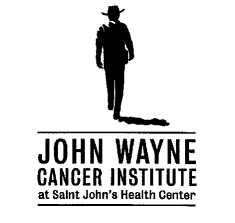Efficacy, Safety and CNS Exposure of G-202 (Mipsagargin) in Patients With Recurrent or Progressive Glioblastoma
| Status: | Recruiting |
|---|---|
| Conditions: | Brain Cancer |
| Therapuetic Areas: | Oncology |
| Healthy: | No |
| Age Range: | 18 - Any |
| Updated: | 4/21/2016 |
| Start Date: | February 2014 |
| End Date: | April 2018 |
| Contact: | Bradley Brown |
| Email: | bdbrown@ucsd.edu |
| Phone: | 858-822-5377 |
An Open-Label, Single-Arm, Phase II Study to Evaluate the Efficacy, Safety and CNS Exposure of G-202 (Mipsagargin) in Patients With Recurrent or Progressive Glioblastoma
Glioblastoma (GBM) comprises about 16% of all malignancies of the nervous system and over
50% of all gliomas. Standard of care for newly-diagnosed GBM is a combination of surgical
debulking followed by concurrent radiotherapy and chemotherapy with temozolomide. Efforts to
improve second-line therapy in GBM have met with only marginal success and there is a large
unmet medical need for new therapies. G-202 (mipsagargin) is an example of prodrug
chemotherapy. It is activated by Prostate Specific Membrane Antigen (PSMA), which is
expressed by some cancer cells and in the blood vessels of most solid tumors, including GBM,
but not by normal cells or blood vessels in normal tissue. It is believed that activation of
the prodrug G-202 will allow the drug to kill cancer cells. This study will evaluate the
activity, safety and CNS exposure of G-202 in patients with recurrent or progressive GMB
receiving G-202 by intravenous infusion on three consecutive days of a 28-day cycle. Funding
Source - FDA OOPD
50% of all gliomas. Standard of care for newly-diagnosed GBM is a combination of surgical
debulking followed by concurrent radiotherapy and chemotherapy with temozolomide. Efforts to
improve second-line therapy in GBM have met with only marginal success and there is a large
unmet medical need for new therapies. G-202 (mipsagargin) is an example of prodrug
chemotherapy. It is activated by Prostate Specific Membrane Antigen (PSMA), which is
expressed by some cancer cells and in the blood vessels of most solid tumors, including GBM,
but not by normal cells or blood vessels in normal tissue. It is believed that activation of
the prodrug G-202 will allow the drug to kill cancer cells. This study will evaluate the
activity, safety and CNS exposure of G-202 in patients with recurrent or progressive GMB
receiving G-202 by intravenous infusion on three consecutive days of a 28-day cycle. Funding
Source - FDA OOPD
Inclusion Criteria:
- Written informed consent to participate in this study
- Histological or radiological confirmation of glioblastoma
- Recurrent or progressive GBM following at least one (1), but no more than two (2)
prior regimens; one of the prior regimens must have included surgery and/or
radiotherapy
- Age > 18 years
- Karnofsky Performance Status (KPS) ≥ 60%
- Life expectancy > 2 months
- Adequate hematologic, renal and hepatic function
- Adequate coagulation profile
- Not pregnant, nursing or planning to become pregnant; willing to use contraception
Exclusion Criteria:
- Deteriorating neurological symptoms, or need for increasing doses of corticosteroids
or new onset of seizures
- Surgical resection or major surgery within 4 weeks or stereotactic biopsy within 1
week of first G-202 treatment
- Toxicity from prior therapy (excluding alopecia) that has not resolved to ≤ Grade 1
unless otherwise specified
- Investigational or cytotoxic therapy within 28 days or nitrosoureas within 42 days of
the first treatment with G-202
- Currently requiring any type of full-dose anti-coagulation treatment, systemic
administration of antibiotics or chronic administration of anti-viral agents.
- History or evidence of cardiac risk, including QTc interval on screening ECG >470
msec, left ventricular ejection fraction (LVEF) < 50%, clinically significant
uncontrolled arrhythmias or arrhythmia requiring treatment with the exceptions of
atrial fibrillation and paroxysmal supraventricular tachycardia, history of acute
coronary syndromes within 6 months prior to the first dose of study therapy
(including myocardial infarction and unstable angina, coronary artery bypass graft,
angioplasty, or stenting)
- Uncontrolled cardiac or coronary artery disease
- Uncontrolled hypertension (mean systolic BP ≥ 160 mm Hg and/or mean diastolic BP ≥
100 mm Hg on 3 determinations 5 minutes apart while on 2 anti-hypertensive agents) or
hypertension requiring treatment with more than 2 anti-hypertensive agents
- Severe or uncontrolled medical disease, including uncontrolled diabetes, congestive
heart failure, chronic renal disease or chronic pulmonary disease
- Severe GI bleeding within 12 weeks of treatment with G-202
- Known history of HIV, hepatitis B or hepatitis C
- Documentation of keratosis follicularis (also known as Darier or Darier-White
disease)
- Requirement for chronic use of strong inhibitors or inducers of cytochrome (CYP3A4)
iso-enzymes
- Known hypersensitivity to any study drug component including thapsigargin
derivatives, polysorbate 20, or propylene glycol
- Any other condition, including concurrent medical condition, social circumstance or
drug dependency, which in the opinion of the investigator could compromise patient
safety and/or compliance with study requirements
- Another primary malignancy that has not been in remission for at least 2 years;
non-melanoma skin cancer, intraepithelial carcinoma of the cervix, or prostate cancer
with a current PSA ≤ 0.1 ng/mL is allowed
We found this trial at
2
sites
2200 Santa Monica Blvd
Santa Monica, California 90404
Santa Monica, California 90404
(310) 582-7438

Principal Investigator: Santosh Kesari, M.D., Ph.D.
Click here to add this to my saved trials
La Jolla, California 92093
Principal Investigator: David Piccioni, M.D., Ph.D.
Phone: 858-822-5377
Click here to add this to my saved trials